
DW Documentary - Season 9
2025 • 123 episodes
About this season
Episodes
Seasons & Episodes

War in Congo- Trapped in a spiral of violence
Episode 1 • Jan 04, 2025

Life between hearing and deafness
Episode 2 • Jan 05, 2025

Is the sea swallowing up the land?
Episode 3 • Jan 08, 2025

The intestine- The body's underappreciated control center and gut health
Episode 4 • Jan 09, 2025
The intestine is a true marvel. This organ’s complex functions extend far beyond the mere processing of food. The intestine affects the immune system and also has a powerful effect on our emotional well-being.

A childhood between Togo and Munich - In search of the truth
Episode 5 • Jan 11, 2025

Pure luxury or bitter poverty - Living on a roof
Episode 6 • Jan 12, 2025

The dilemma of international egg donation: going abroad for a baby
Episode 7 • Jan 14, 2025
For some women, getting pregnant is only possible through egg donation. It’s a pathway to parenthood with children who aren’t biologically their own. While egg donation is legal in many countries, it’s banned in places like Switzerland and Germany. This film takes a compassionate look at the impact of this medical dilemma and the laws that often make little sense to the people who are affected by them. Why is sperm donation allowed in so many places, but not egg donation? Why do donors in so many places have to remain anonymous, even though it could cause emotional problems for the children? The film also shows that with an empathetic approach, it’s possible to avoid trauma and help children and families navigate this complicated journey.

Cambodia - How microcredit is making the world's poor even poorer
Episode 8 • Jan 15, 2025

In the shadow of trauma- Life after Auschwitz
Episode 9 • Jan 24, 2025
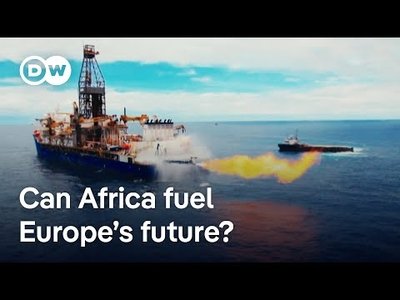
Gas from Africa- Europe’s search for new suppliers
Episode 10 • Jan 25, 2025

Challenges, heartache and confidence: Stories from Eastern Europe
Episode 11 • Jan 30, 2025
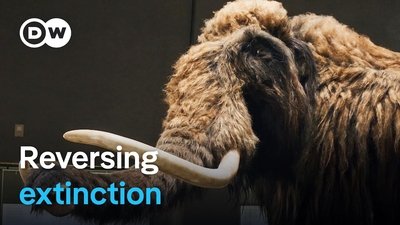
Should we bring extinct species back to life?
Episode 12 • Feb 06, 2025
All around the world, scientists are working to recreate lost animal species such as the mammoth. Using modern genetic techniques, they’re extracting ancient genetic material from museum exhibits. However, these practices are also attracting criticism. Biology researchers question the usefulness of revived species for natural habitats. They fear that the excitement surrounding the idea of bringing back extinct species could distract people from the many problems that cause animals to disappear, in the first place. Are some scientists playing God - with unforeseeable consequences for the environment?
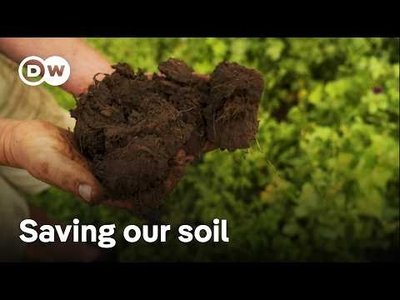
How farmers are protecting the soil and our food security
Episode 13 • Feb 14, 2025

Teenagers of Donbass: Growing up in war
Episode 14 • Feb 14, 2025
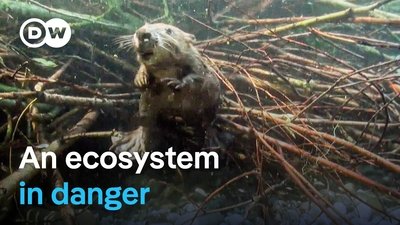
Saving beavers and pond turtles
Episode 15 • Feb 16, 2025

Haiti- The iron grip of the gangs
Episode 16 • Feb 21, 2025

The fight for water in Bangalore
Episode 17 • Feb 26, 2025

Africa‘s tech pioneers- Innovative solutions for a sustainable future
Episode 18 • Feb 27, 2025
Ten of the world's fastest growing economies are located on the African continent. Companies in the field of science and innovation are being promoted. Climate-friendly ideas for the future are already being realized in African countries. However, climate change caused by industrialized nations in the northern hemisphere poses a particular threat to Africa. Of the almost 1.5 billion Africans from 54 countries, as many as 117 million people could be at risk from rising sea levels in 2030. By 2100, Africa’s total population could be around 3.8 billion. One solution under consideration is to build a floating city in Lagos, Nigeria, that can adapt to the consequences of climate change.

The American abortion war
Episode 19 • Feb 28, 2025
In the USA, abortion rights are tearing the nation apart. Abortions are banned in the state of Texas, but that's not enough for anti-abortion activists. They go even further -- and encounter resistance. The film follows one of America's leading abortion opponents, Mark Lee Dickson, in Texas. He wants to prevent women from traveling to another state for an abortion. Dickson and his followers believe that abortion is always murder. They do not even accept the birth control pill. They believe that life begins with the union of sperm and egg. As a result of Texas' strict abortion policy, clinics offering abortions have had to relocate to neighboring New Mexico. How do the bans affect women? And what is it like to work as a doctor who performs abortions? The film examines questions like these. But the film also shows that there is resistance to Dickson's campaigns, including a women's group that opposes the ultra-conservatives.
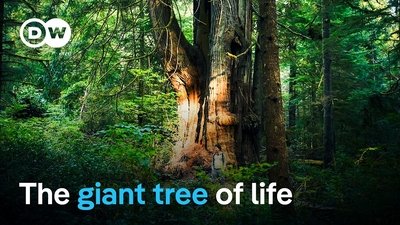
Life in Canada's Great Bear Rainforest
Episode 20 • Mar 05, 2025
Canada's Great Bear Rainforest is a place where the rainforest and Pacific Ocean meet. This special forest is home to countless spruce and fir trees. One very special species towers above them all, giving many animals shelter: the giant arbor vitae, or ‘Tree of Life’. Forest and ocean live in symbiosis here. When heavy rainfall erodes the soil, nutrients are transported through the rivers to the sea, where they benefit the humpback whales. Nowadays, however, this complex ecosystem is threatened by massive logging. Here, too, humans are jeopardizing a balance that has existed for thousands of years.
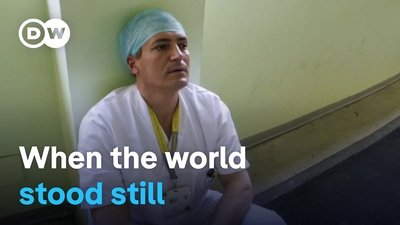
The coronavirus pandemic and its consequences
Episode 21 • Mar 02, 2025

Uganda - Protheses for a new life
Episode 22 • Mar 09, 2025
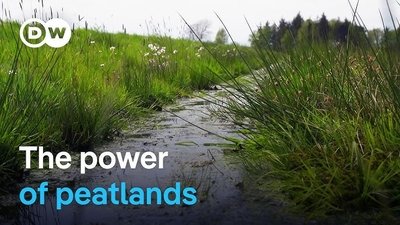
Climate protection from moors
Episode 23 • Mar 16, 2025
Peatlands bind more carbon than forests. But in Germany, almost all the country’s natural peatlands have been drained. Now, they’re emitting greenhouse gases. People around the world are currently working to rewet the moors - while keeping them usable for agriculture.
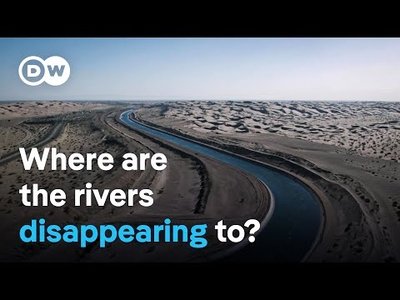
Rivers ans risk- Water crisis on four continents
Episode 24 • Mar 22, 2025
Water is scarce, but global demand continues to rise. Humanity is facing serious disputes over our most important resource. What impact is our lifestyle having on our planet's water cycles? Along six rivers on four continents, the documentary explores the question of why this vital resource, water, is becoming increasingly scarce - and who’s responsible. 70 per cent of fresh water is used in agriculture. Around 20 per cent of global water pollution is caused by the textile industry. The film provides rare insights into Indian factories and life in the places where contaminants are discharged. But it’s not all bad news. In the film, we also meet people who’ve come up with solutions.
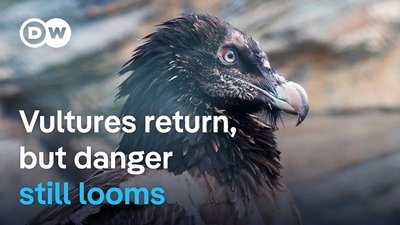
The return of vultures to Europe
Episode 25 • Mar 25, 2025
Some twenty years ago vultures were close to extinction in much of Europe. Since then, the birds have been successfully reintroduced in parts of Germany, Spain and France. They may be back, but vultures still face many dangers.
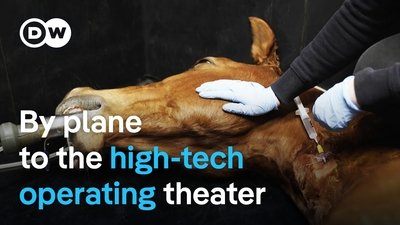
Luxury clinic for valuable horses
Episode 26 • Mar 26, 2025
The film explores the work of one of Europe’s largest and most modern equine clinics, where the specialist vet meets clients with great expectations, and an even greater love for their horses.
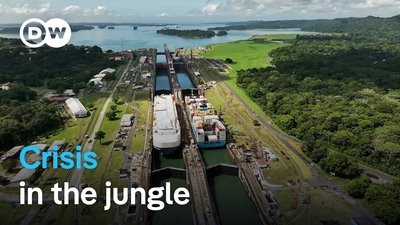
Panama - Navigating crises at the canal
Episode 27 • Mar 27, 2025
Panama's famous canal connects the Atlantic and Pacific Oceans. But, this important gateway for world trade is increasingly blocked. Cargo ships often have to wait weeks for passage, because water levels in the canal are too low. The cause? Drought.
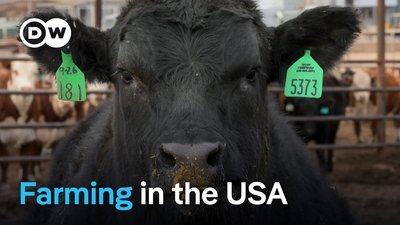
Agribusiness in the USA - The dark side of productivity and profitability
Episode 28 • Apr 02, 2025
In the USA, agriculture is dominated by two magic words: productivity and profitability. The two million farmers in the United States are impressive businessmen. But their agribusiness is causing great damage. Oversized farms, fattening facilities and pesticides: when it comes to producing more and more, almost anything goes. On cattle fattening farms in the Midwest, thousands of animals are crammed into stalls without a single blade of grass, fattened up and treated with growth hormones. Here, industrial methods are taken to the extreme. In California, carrots, artichokes and strawberries are grown on huge plantations. But this west coast grower’s paradise is struggling with extreme water shortages. Water is pumped from rivers, reservoirs and groundwater reserves at great expense. Faced with a desperate water shortage, farmers are working at breakneck speed -- even if it means that the region's inhabitants have no access to drinking water.
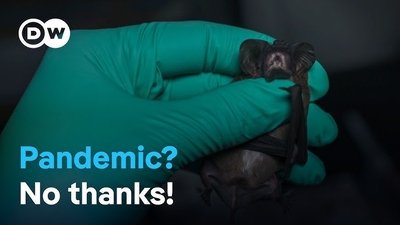
Tracking pandemics: Detecting new diseases early
Episode 29 • Apr 06, 2025
Corona, AIDS and the Spanish flu have claimed many millions of lives. Now, researchers around the world are trying to better predict and prevent pandemics like these in the future.
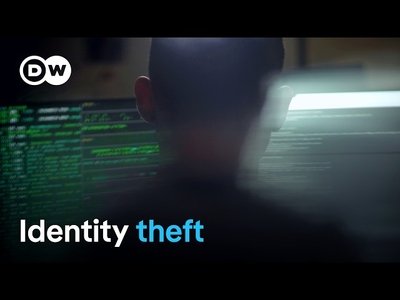
Hackers, malware and the darknet
Episode 30 • Apr 10, 2025
Cyberspace is less secure than ever before. Hackers exploit human error or technical loopholes to steal data -- or publish it on the darknet, if the ransom demanded is not paid. It’s a practice wiith catastrophic consequences. In the film, victims and their relatives talk about how their lives have been impacted by cyberattacks. Company bankruptcies, loss of pension insurance, even suicide - the consequences can be fatal. In the film, viewers also hear from a hacker, who explains how straightforward it is to deprive people of their data.

Pirates - Simple sailors or brutal thieves?
Episode 31 • Apr 01, 2025

Life after violence and explotation- The dark side of sex work
Episode 32 • Apr 13, 2025
In 2002, a law was passed in Germany to legalize sex work as a service. The change in the law presupposes that people offer sexual services voluntarily and that they are of legal age. However, the reality is often different. Also, there have been fewer investigations into human trafficking for the purpose of sexual exploitation. But many women are afraid to testify, says Helmut Sporer, a former senior criminal investigator in the field of sex work and human trafficking.
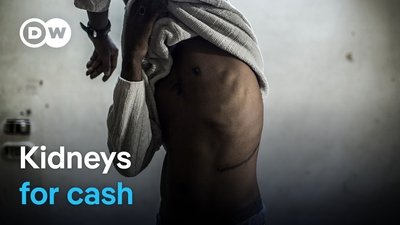
The global organ trafficking network
Episode 33 • Apr 14, 2025
On the internet, the offer looks very serious: a start to a new life without dialysis, with a new kidney in just a few weeks. A glimmer of hope for seriously ill people who have been waiting for years for a donor organ. Behind it all is a notorious network of international organ traffickers. We have been following the trail for months. At the center is a transplant clinic in Eldoret, Kenya, where patients from Germany and Israel in particular meet donors from countries in the Caucasus such as Azerbaijan. There are also young Kenyans who are persuaded that they are getting a good deal at 4,000 euros for a kidney. Recipients pay up to €200,000 ($222,000 USD) to organ traffickers. There are many indications that local authorities are looking the other way and that politicians are covering up the trade.

Camel racing in Egypt
Episode 34 • Apr 19, 2025
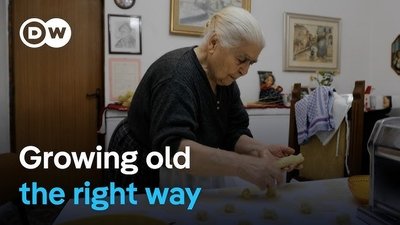
Eternal Life? The secrets of the centenarians
Episode 35 • Apr 20, 2025
In the villages on Sardinia's east coast, people live longer than almost anywhere else in the world. But why? Is it due to nutrition? The good weather? Or genetics? Scientists around the world are attempting to solve the mystery.

The life of Pope Francis and its most important moments
Episode 36 • Apr 21, 2025
In March 2013, Jorge Mario Bergoglio from Argentina was elected 266th Pope, the first South American to become spiritual leader of the Catholic Church. He set out to reform the Vatican and the papal office, advocated climate protection and inter-religious dialogue.The name he chose toi be known by refers to St Francis of Assisi. Following "the little poor man’s” example, Bergoglio wanted a "poor church for the poor". In memory of Pope Francis, Deutsche Welle is rebroadcasting the feature "Pope Francis — A Shepherd in the Storm.” On the occasion of the Pope's 85th birthday in December 2021 our report was an opportunity to take stock of his pontificate. What was this Pope able to change and reform; where were his limits? How did he lead the Catholic faith community through a time marked by crises and scandals?

Dr. Sanduk Ruit’s Himalayan mission
Episode 37 • Apr 22, 2025
Sanduk Ruit has devoted his life to healing as many cataracts sufferers as possible. The Nepalese doctor, who himself comes from a modest background, wants to ensure high-quality surgery for patients living in grinding poverty - even where there is no hospital in the vicinity. The 70-year-old and his team have now treated well over 100,000 people with cataracts. This documentary accompanies Sanduk Ruit to an extremely remote region of the Himalayan Mountains, where every 12 years the Dolpo region of Nepal hosts the Shey Festival at an elevation of over 4,000 meters. It’s a centuries-old cultural event, which is rooted in Tibetan Buddhism and draws people from far and wide - and for the doctor, a perfect opportunity to treat a large number of patients in one location.

A sperm donor and his 30 children
Episode 38 • Apr 23, 2025

Francis - A pope for the poor and the marginalized
Episode 39 • Apr 25, 2025
The papal appointment of Argentine national Jorge Mario Bergoglio wrote history. For the first time, a non-European and Jesuit had been made head of the Catholic Church. He was also the first Pope to take the name Francis. Francis of Assisi, founder of the Franciscan order, is venerated as patron saint of the poor. Pope Francis was drawn to his example and tried to emulate his qualities. The film, broadcast in March 2014 one year after Francis took office at the Vatican, compares the story of Francis of Assisi with the actions and deeds of the Pope. He was - just like his role model - a man of peace and dialog. He advocated for a merciful Church; even in pre-papal years as a priest in Argentina. The film shows that throughout his life, he never forgot the poor and the marginalized.

Orlando- The dark side of the world's theme park capital
Episode 40 • Apr 26, 2025
With dozens of theme parks, Orlando is seen as a paradise for fans of attractions and rollercoasters. But the shiny, fairytale world also has a lesser-known, darker side. Negligent safety measures have resulted in accidents, some of them fatal. In one accident in 2022, a teenager tragically died on the Free Fall ride. And for park employees, life in the Sunshine State of Florida is often far from rosy. Many struggle to survive on minimum wage, while others are homeless.

The Vietnam War
Episode 41 • Apr 27, 2025
Using original and archive material, the film tells the story of the Vietnam War, beginning with the Indochina War and liberation from the colonial power France to the 1990s, when relations with the USA were finally normalized.
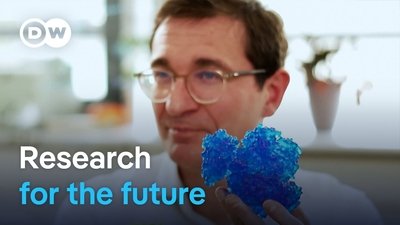
Bioplastics and other innovations against climate change
Episode 42 • Apr 28, 2025
Researchers from various disciplines are determined to fight climate change. At Kassel University in the German state of Hesse, for example, research is being carried out on a new method of producing concrete that is low in CO2 emissions. In the neighboring city of Giessen, two researchers invented bioplastic - by chance. What began with a forgotten petri dish is now set to revolutionize the region’s packaging industry. All these examples show how science is working hard to protect the climate. The film takes viewers into the laboratory -- and explains the relevance of today's research for how we’ll be living our lives tomorrow.
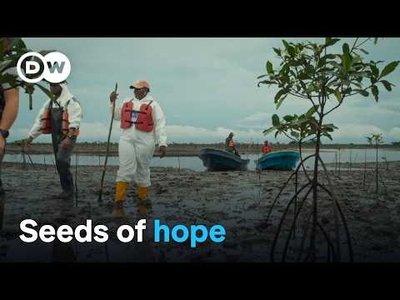
Nigerian communities vs. Big Oil
Episode 43 • Apr 29, 2025
The Niger Delta in Nigeria is one of the most polluted areas on earth - due to repeated oil spills. Environmentalists, scientists and lawyers are working together to restore the damage and seek justice for local residents.
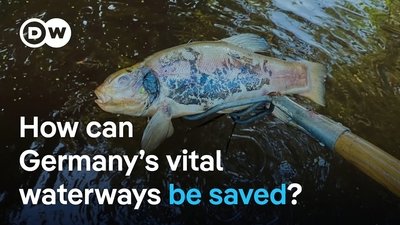
Germany’s rivers are dying - Pollution, extinction and the fight for clean water
Episode 44 • Apr 30, 2025
Most of Germany’s rivers are in poor condition. Pollutants from industry and agriculture contaminate the water and lead to algal blooms and species die-offs. Environmental advocates and riverbank residents are fighting for more protection for waterways.
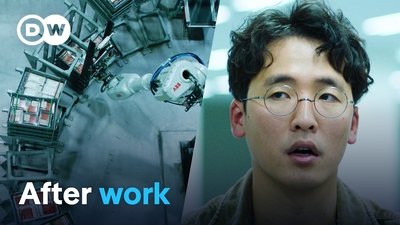
How our relationship to work is changing
Episode 45 • May 01, 2025
According to estimates, Artificial Intelligence and automation will replace a large proportion of the global workforce in the coming decades. So, it's time to look for concepts for a post-work era. Based on interviews with people in Kuwait, Italy, the USA and South Korea, the film examines the human relationship to work and explores the question: What will we do, when we no longer have to work?

Buthan- Back to the roots, with a Buddhist monk
Episode 46 • May 02, 2025

Son of the Mullah- Escape from Iran
Episode 47 • May 03, 2025

Danger from the North Sea- The search for explosive ordnance from WWII
Episode 48 • May 04, 2025

Hitler's Reich- Diaries of Nazi supporters, opponents and victims (1/4)
Episode 49 • May 05, 2025

1945- The world after World War Two
Episode 50 • May 07, 2025
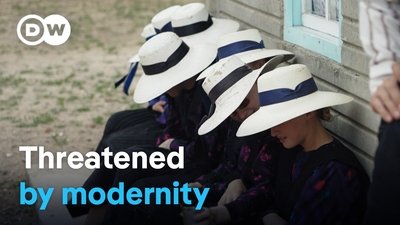
Mennonites- A hidden world in Argentina
Episode 51 • May 09, 2025
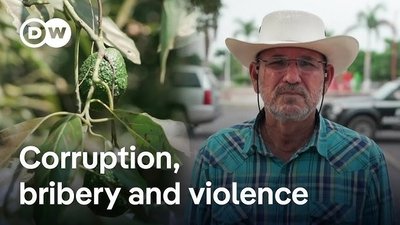
The cartels that control Mexico's mega market
Episode 52 • May 10, 2025

A tough business- The oyster farmers of Arcachon
Episode 53 • May 10, 2025
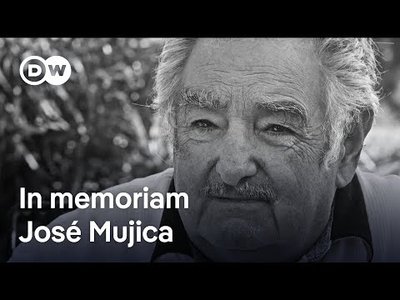
José Mujica- Life in a globalized world
Episode 54 • May 13, 2025

Hitler's Reich- Diaries of Nazi supporters, opponents and victims (2/4)
Episode 55 • May 14, 2025

What's life like for Canada's queer indigenous community?
Episode 56 • May 15, 2025
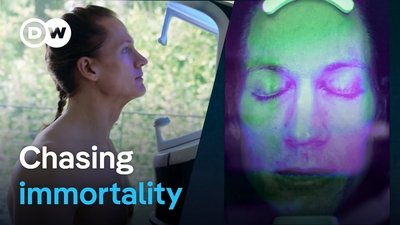
A global longevity movement- Eternal life with biohacking?
Episode 57 • May 16, 2025

Animals on Instagram - Costumed dogs and tigers in Lamborghinis
Episode 58 • May 18, 2025

Hitler's Reich - Diaries of Nazi supporters, opponents and victims (3/4)
Episode 59 • May 21, 2025
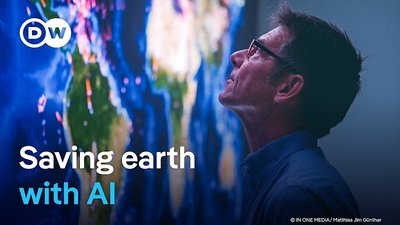
AI and biodiversity
Episode 60 • May 22, 2025
The sixth extinction of species is in full swing. In the race against time, researchers around the world are relying more and more on high-tech. This visually stunning documentary shows the race to build futuristic technologies to protect species.

The new face - The hyaluron beauty hype
Episode 61 • May 23, 2025
Hyaluron has been used with increasing frequency, as social media normalizes lip injections. In Germany, this beauty industry procedure may only be carried out by doctors or alternative medicine practitioners - professionals who understand the risks. The market for aesthetic surgery has grown rapidly. However, some offers are questionable -- and can have serious health consequences.
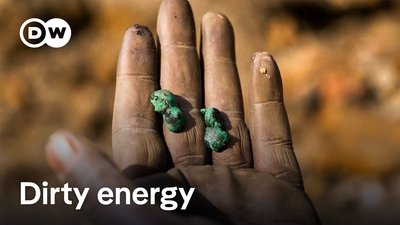
Illegal cobalt mining in the Congo
Episode 62 • May 27, 2025
Cobalt is a highly prized metal, especially for makers of smartphones and EVs. Almost 75% of global production comes from the Democratic Republic of Congo - where there are also children toiling away in the mines. In protest, activists have repeatedly called for a boycott on cobalt from the DRC. To what extent is child labor a factor in cobalt production today, and what can consumers do to combat it? What about corporate responsibility? Are companies doing enough to ensure the cobalt they're using hasn't been mined by a child?

Hitler's Reich- Diaries of Nazi supporters, opponents and victims (4/4)
Episode 63 • May 28, 2025
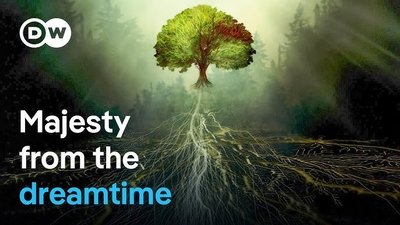
Australia's king eucalyptus
Episode 64 • May 29, 2025
Vast areas of Australia are covered by forests of giant eucalyptus. According to the Aborigines, the ‘king’ eucalyptus, which can grow up to 100 meters high, has mythical power. However, humans are disturbing this natural balance. Global warming and humans‘ use of forests are increasingly leading to large fires. These destroy millions of hectares of forest -- and spare hardly any living creatures. A natural system that is thousands of years old is in danger.

Michelangelo, Raphael and Leonardo da Vinci
Episode 65 • May 30, 2025

The trade in human skulls from the colonial era- A disturbing legacy |
Episode 66 • May 31, 2025
"African human skull, early 20th century, 2,000 euros." Adverts like this can be seen on social media. The trade is legal in Germany, even when the skulls date from the German colonial era. Customs expert Daniel Bein says the trade in human skulls is not prohibited per se. But politicians are now evaluating the issue, and plan to introduce legislation that will ban private trade in human skulls and bones. The filmmakers conduct research at home and abroad, visit an international market for human skulls, meet one of the largest dealers in London and speak to buyers in Germany. They also accompany people who are themselves searching for the skulls of their ancestors, to bring them back to their homeland.
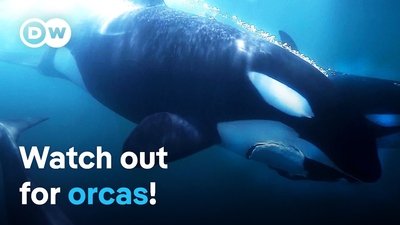
Orca interactions- Danger in the Strait of Gibraltar
Episode 67 • Jun 04, 2025
Since 2020, reports have increased of boats being rammed by orcas along the European Atlantic coast. The whales make a beeline for the hulls and rudders. Researchers are trying to find out why. Researchers largely agree that the Gibraltar killer whales are under severe stress. There’s heavy marine traffic in the strait and along the entire Iberian coast. Humans and animals compete for tuna, and noise pollution is high. The documentary hears from researchers, scientists and the boat crews themselves, about the unusual behavior of these animals.
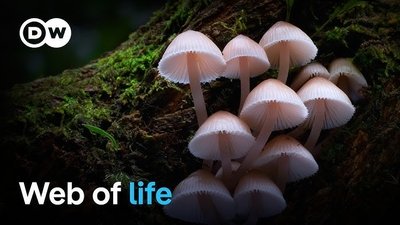
The wonderful world of fungi
Episode 68 • Jun 06, 2025
Life on Earth wouldn’t be possible without fungi. Yet they largely elude our view, as they form a finely tuned network that runs through the soil of the forests. Everywhere on Earth. Whether in the centuries-old rainforests of Tasmania or in China's Yunnan Province - researchers are trying to understand exactly how fungi maintain the balance of ecosystems. So much more than mushrooms, fungi shape weather and support life on land. They’re also at the cutting edge of medical research, and even have the power to break down plastic waste. Whether under the microscope or in the woods, the dazzling images in this documentary immerse you in the mysterious world of mushrooms.
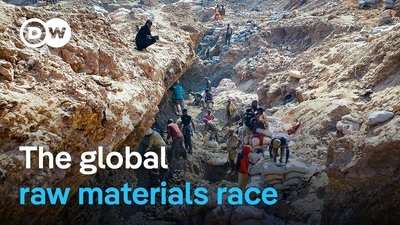
Exploiting Africa
Episode 69 • Jun 07, 2025
The global race for the African continent‘s coveted raw materials is unscrupulous. The raw material interests of rich nations often trump the rights and needs of the local populations.

Why did the Neanderthals die out?
Episode 70 • Jun 12, 2025
The extinction of the Neanderthals, the one species that dominated the Eurasian continent prior to the arrival of Homo sapiens, is one of the most puzzling topics in archeology. How were these two hominids connected? Was Homo sapiens partially responsible for the eradication of the Neandertals from planet Earth? Or did the two potentially coexist over several millennia? A team of researchers led by archaeologist Ludovic Slimak are working in the Mandrin Cave to answer these very questions. Their findings are being examined by scientists from the French research organization CNRS, using state-of-the-art archaeological methods.
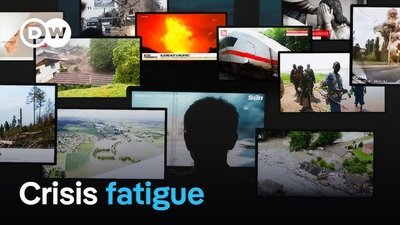
The psychological impact of a world in crisis
Episode 71 • Jun 17, 2025
Natural disasters and wars, each seemingly more devastating than the last. Are we becoming desensitized to this constant stream of bad news? And could that actually be necessary to help us stay functional amid global conflict and the climate crisis?
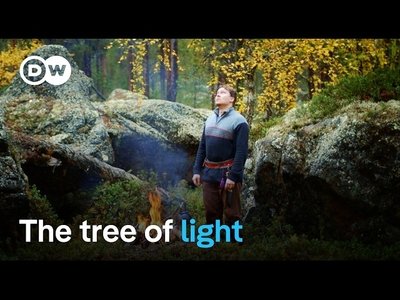
The sacred birches of the Taiga
Episode 72 • Jun 18, 2025
The taiga is the largest contiguous vegetation zone in the world. The birch plays a special role in this boreal coniferous forest. Its light-colored bark forms a perfect insulating layer. Symbiotic fungi protect its roots from attackers. But increasingly extreme summer heatwaves are threatening the fragile ecosystem of the boreal coniferous forest. Animal and plant species must adapt - or migrate further north to escape extinction.

Defenseless people- The Yazidis and their lives after the genocide
Episode 73 • Jun 19, 2025
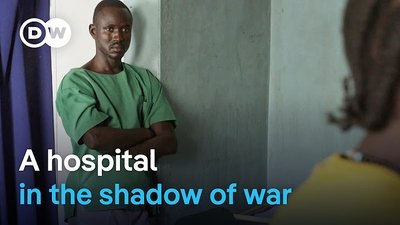
War in Sudan- A surgeon and his team working to save lives in the Nuba Mountains
Episode 74 • Jun 21, 2025
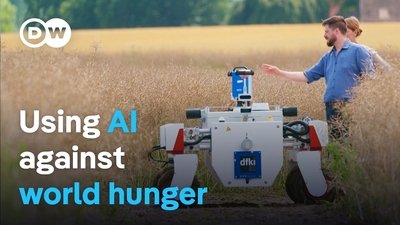
Artificial intelligence in agriculture
Episode 75 • Jun 22, 2025
The way we feed ourselves is changing. Agriculture will also be impacted by Artificial Intelligence. Could AI present an opportunity for increased food security in the future? Ethical issues are a major hurdle when using AI. Ameca, the world's most advanced humanoid robot, guides us through the film with his assessments: What are the potentials and limits of AI?
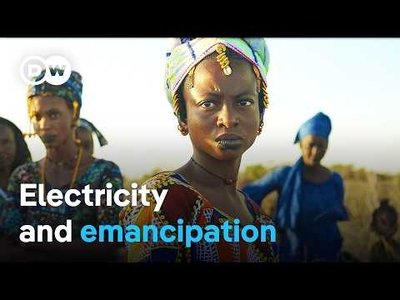
How a village in Senegal is using solar energy to bring itself into the modern age
Episode 76 • Jun 25, 2025
In a remote village in Senegal, a woman is using solar energy to bring progress. Against her husband's wishes, she trains to become a solar technician. Four months later, the women return to the village, bringing with them much-desired know-how. They explain how the houses can be supplied with solar energy. Little by little, solar power is finding its way into people's everyday lives. Through their actions and their training, the women subtly raise questions about the meaning of modernity -- and the position of women in society.

An endless war: Iran, Israel and United States (1/2)
Episode 77 • Jun 26, 2025

An endless war: Iran, Israel and United States (2/2)
Episode 78 • Jun 26, 2025

How the internet warps our emotions
Episode 79 • Jun 27, 2025
Is the internet making us emotionally numb? Online trolls and influencers expertly manipulate people's feelings, leading many to disconnect from their emotions. Scientists explain how the internet influences what we feel- and whether we feel at all.

By train to Hudson Bay
Episode 80 • Jul 01, 2025

Cape Verde: Island paradise with a dark side
Episode 81 • Jul 02, 2025
Endless beaches, majestic mountains and villages with multi-colored houses: Cape Verde has become one of the hottest new destinations for social media influencers. Here, tourists can enjoy a week at an all-inclusive resort for as little as €700, including travel. But virtually none of this benefits the island. Indeed, a lack of opportunities, coupled with a severe drought, mean that some women have to resort to stealing sand from the sea floor in order to survive. The islands are on the frontline of global warming. It has hardly rained in the past seven years. While tourists enjoy numerous huge swimming pools and are unaware of the crisis, families in Cape Verde are restricted to a few 25-liter containers of water per day. All food and supplies for the hotels are imported from wherever they can be sourced cheapest, providing no benefit to the local economy.

Switzerland’s gold
Episode 82 • Jul 03, 2025
Four of the seven largest gold refineries in the world are located in Switzerland. However, the legal regulations are weak. What is the industry doing to ensure that no "dirty gold” ends up in Switzerland? In 2023, the United Nations sent a letter to the Swiss government. The accusation: Their laws were too lax. As a result, Switzerland was becoming a gateway for gold sullied by human rights violations, child labor, mercury poisoning, environmental destruction or involved in the financing of illegal groups. Industry representatives and the Swiss government claim that great efforts are being made to make supply chains transparent. The film examines how successful these efforts are. Can supply chains be fully traced and monitored? A trip to the largest gold producers in Africa shows the chasm between Switzerland’s claims and the reality on the ground.

Caregivers from South America negotiate Germany's jungle of red tape
Episode 83 • Jul 04, 2025
Germany is reliant on skilled labor from other countries. But German bureaucracy makes it difficult for people like Yanileidy. She came from Colombia to work as a nurse. The original plan -- to put her family life on hold -- ultimately broke her family up. "German bureaucracy really isn’t kind,” says Yanileidy. The Colombian pediatric nurse left her two small children at home in the hope of being able to lead a better life as a nurse in Germany. The plan was that after her first few months, her family would follow her. But bureaucratic hurdles turned those months into years. In the end, her marriage didn’t survive the long wait. "We can't afford such complicated bureaucracy,” says Isabell Halletz, head of the German Employers’ Association of Care Providers. Nursing staff are already dropping out in droves and choosing to go to the US or Canada.

Everyday life in the Bosnian War - What happened in Srebrenica?
Episode 84 • Jul 05, 2025

How sustainable are tomatoes?
Episode 85 • Jul 06, 2025
Delicious, sweet, low in calories: Tomatoes have a good reputation. They’re the most important vegetable in the world, with a total production of 190 million tons per year. But how sustainable is their cultivation?

Crypto fraud: The OneCoin scandal
Episode 86 • Jul 09, 2025
OneCoin was launched in 2014 and billed as the world's largest cryptocurrency. Founder Ruja Ignatova earned many millions of Euros before a tech nerd stepped in to stop the scam - putting himself in danger.

Superpower or escape from reality: What is maladaptive daydreaming?
Episode 87 • Jul 11, 2025
Many people daydream. But excessive daydreaming can become a burden. This is because the exaggerated mental digressions, termed Maladaptive Daydreaming (MD), often get in the way of real life. Although the fantasies in daydreams can also help to organize thoughts, reduce stress, process events and wishes and inspire creativity, the film shows that ‘too much of a good thing’ prevents people from mastering their everyday lives and completing important tasks. And if the hopes expressed in daydreams aren’t fulfilled, it can even be a trigger for depression.

Oppenheimer after Trinity
Episode 88 • Jul 16, 2025
American physicist Julius Robert Oppenheimer is regarded as the father of the atomic bomb. Delving into his complex mind, this prize-winning documentary explores what happened before, during and after the testing of the world's first atomic bomb in the deserts of New Mexico in July 1945.
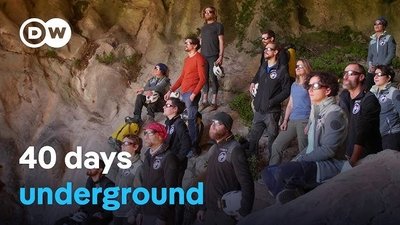
Without time, without light - How do the brain and body react?
Episode 89 • Jul 17, 2025
14 volunteers live underground for 40 days. With no way to mark time, this is an extreme experiment. How do people adapt to these conditions? How do the body and brain react to the loss of a sense of time? A scientific adventure aims to find out.

Racism, hatred and terror - The global network of rightwing extremists
Episode 90 • Jul 18, 2025
Racist and right-wing extremist networks are coalescing, worldwide. They carry out terrorist attacks on minorities and democratic institutions. Authorities in the USA and Europe consider this movement to be more dangerous than Islamist terrorism. Filmed in the USA, western and eastern Europe, the UK, Scandinavia and Brazil, WORLD WHITE HATE charts the development of the threat posed by right-wing terror. It is exacerbated by populist politicians such as Donald Trump and radical right-wing parties. The documentary WORLD WHITE HATE by Dirk Laabs analyzes the mechanisms of radicalization and discusses possible counter-strategies for democratic societies. The central question remains: “How can we win the digital and real battle against increasing violence from the right?”

New alliances in East Asia?
Episode 91 • Jul 19, 2025
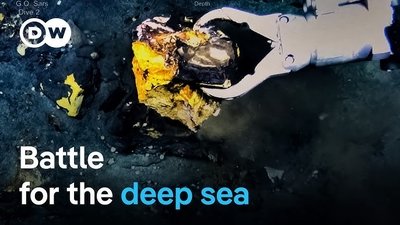
Deep sea mining: What’s the true cost of renewable energies?
Episode 92 • Jul 20, 2025
The idea is that electric cars, solar panels and wind turbines will reduce our consumption of coal, oil and gas. However, these technologies rely on many raw materials present below the seabed. The race for deep sea resources has begun. The immense demand for metals such as nickel, cobalt and copper for electromobility and alternative energy sources has so far largely been met in the Global South - in Africa, Asia and Latin America. But these deposits aren’t enough. Attention is now turning to the oceans. Here, it’s thought that vast deposits of the metals exist below the seabed. A geopolitical race has begun between states to exploit these resources. And that's not all: extraction of the metals threatens to cause major ecological damage.
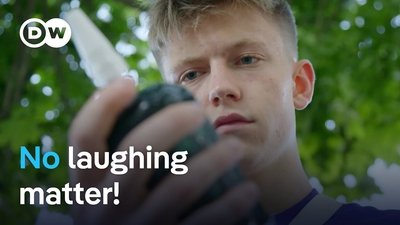
Nitrous oxide - How harmless is laughing gas really?
Episode 93 • Jul 22, 2025
Nitrous oxide, commonly referred to as laughing gas, is often considered a harmless way of getting high. In Germany, you can buy it freely over the counter. But while the gas might make you feel relaxed or elated for a few seconds, it can also lead to long-term health problems.
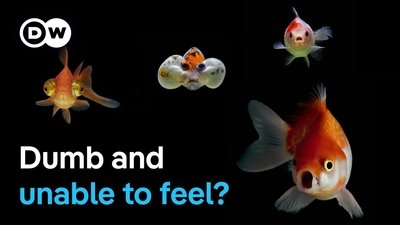
Are fish smarter than we thought?
Episode 94 • Jul 23, 2025
For several years, researchers have been trying to understand what goes on in the minds of aquatic creatures. And the latest discoveries exceed all expectations. The documentary presents these astonishing findings and illustrates how fish perceive the world, communicate with each other and interact with their environment.
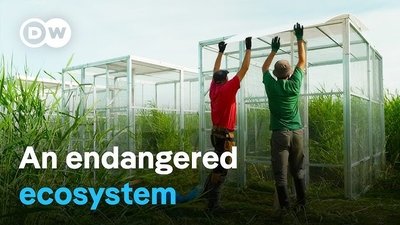
A small Polish village saves the moors
Episode 95 • Jul 24, 2025
The Polish village of Rozwarowo in northern Poland is saving the moors. Local thatcher Alfred Smolczynski initiated the process: He’s been renaturalizing the moor since the 1980s, in the face of much resistance. Now, bird conservationists are reintroducing the sedge warbler there.

Hitler's invasion of the Soviet Union: Operation Barbarossa (1/2)
Episode 96 • Jul 25, 2025

Hitler's invasion of the Soviet Union: Operation Barbarossa (2/2)
Episode 97 • Jul 25, 2025
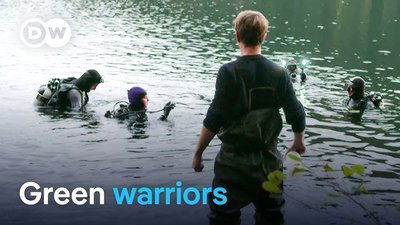
Wars and their toxic legacy
Episode 98 • Jul 30, 2025
Until the 2000s, France submerged, buried or destroyed thousands of tons of ammunition. Long forgotten, these rubbish heaps are now releasing pollution that is toxic and carcinogenic. The film follows environmental activists over the course of a year as they investigate the consequences of these buried weapons.
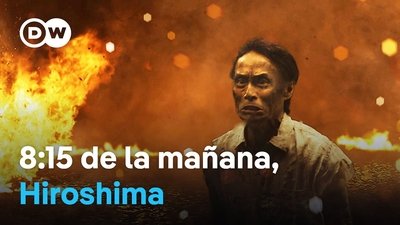
Hiroshima - A story of survival, loss and forgiveness after the atomic bomb
Episode 99 • Aug 02, 2025
On August 6, 1945, at 8:15 a.m., the first atomic bomb explosion in a war killed more than 70,000 Japanese civilians in Hiroshima in one fell swoop. Countless others, seriously injured, fought for their lives. The massive detonation wave completely destroyed 80 percent of Hiroshima’s city center. Just 1,200 meters away, Shinji Mikamo and his father Fukuichi miraculously survived the catastrophe. Shinji was rescued from the danger zone by his father, who was also wounded and suffering from severe injuries and burns. It was a long, painful journey. When they parted ways, the teenager Shinji had to survive on his own. The documentary shows the true story of Shinji's journey of survival and forgiveness. It combines rare footage with poignant re-enactments to create a haunting first-hand account of the horrors of nuclear war. It was produced by Shinji's daughter Akiko. She sends a message of peace to the world, so that "no one has to suffer from nuclear war again”.
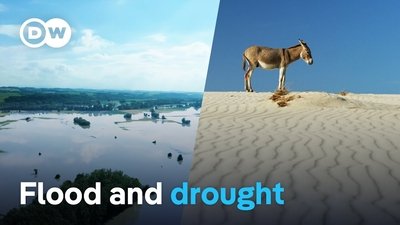
Water - Too much and not enough
Episode 100 • Aug 06, 2025
Water forms the basis for all life on Earth. It has shaped human activity and influenced the development of entire societies. Water has always been a mainstay of health, prosperity and power. Water means life or death. Experts around the world are urging us to rethink the way we use water. Fresh water accounts for only 2.5 percent of the total volume of water on earth. Water is practically never "lost" on Earth. But precipitation volumes and zones are changing. Extreme weather conditions last longer and become more intense. The consequences are obvious and far-reaching. Drinking water shortages, dwindling water levels in lakes and rivers, floods and mudslides are increasingly becoming the focus of media coverage. Consumption must not simply continue to rise from year to year. Rather, we must make better use of what is available to us. On the one hand, this means using extracted water more efficiently and, on the other, finding solutions to adapt to the new circumstances.

Burnout - What are the warning signs?
Episode 101 • Aug 07, 2025
Every year, hundreds of thousands of people worldwide suffer burnout. This mostly invisible and insidious illness often gnaws at those affected for a long time. Often, they report not knowing why they feel so bad. Diagnosis is difficult. How can you recognize the symptoms before it’s too late? What are the warning signs? What tools do we have to deal with it? And why does the WHO not recognize burnout as a disease? In Europe and North America, measures are now being taken to prevent the onset of the disease and to measure its cost to society. In France, structures are being created for the care and reintegration of those affected. However, there still seems to be a long way to go before mental health in the workplace becomes a priority again in today's world.
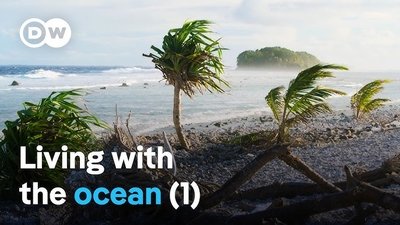
Treasure islands in the Pacific (1/2)
Episode 102 • Aug 08, 2025
The Pacific Ocean is larger than the entire land mass of the Earth combined. Today, it is increasingly becoming a strategic arena for the world’s major powers - each seeking to safeguard its own economic and political interests. Lucie Knor, a German doctoral student, is researching how an increased uptake of greenhouse gases is affecting living conditions in the ocean around Hawaii. On the Cook Islands, the team finds out how climate change impacts the lives of whales. Whale researcher Nan Hauser and her team hope that their work will shed new light on the migration of whales - to protect them. Many islands are facing an uncertain future. But on the Cook Islands, people are hoping for a new gold rush, thanks to the presence of minerals in the seabed that could become increasingly valuable as demand for renewable energies grows. Mark Brown, head of the Cook Islands government, says deep-sea mining has the potential to make his island nation more economically independent.
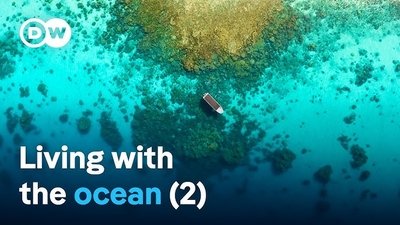
Treasure islands in the Pacific (2/2)
Episode 103 • Aug 14, 2025
On the Chatham Islands, we learn how loneliness becomes a daily challenge when you live surrounded by so much water. A supply ship fails to arrive on time, leading to food prices rising quickly and diesel becoming scarce. But there is a treasure that is harvested in this remote region - something prized by gourmets that fetches high prices: abalone. Jade Kahukore-Dixon dives for these precious sea snails, gathering them at depths of 10 to 15 meters. But the job is dangerous. This is great white shark territory. Divers are regularly injured or even killed. Over on the Marshall Islands, we find the area where the United States tested atomic and hydrogen bombs until the 1960s. The people of these remote atolls are still living with the consequences. On Runit Island lies one of the world’s largest nuclear waste sites - the structural integrity of which is now under threat because of rising sea levels and tropical storms.
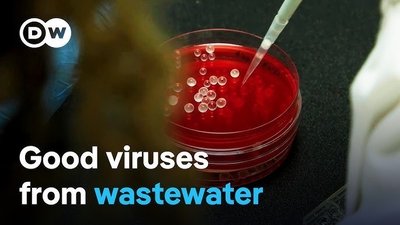
Is there an effective alternative to antibiotics?
Episode 104 • Aug 15, 2025
Is there an effective alternative to antibiotics? Researchers around the world are focusing on bacteriophages. These "good" viruses infect specific bacteria and destroy them. Do they offer a way out of the antibiotics crisis? Every year, around 1.3 million people die because of antibiotic resistance. According to the World Health Organization (WHO), this is one of the biggest threats to global health. There are various reasons for the growing number of antibiotic resistances: Unspecific or incorrect use of antibiotics causes bacteria to mutate into multi-resistant germs. In addition, the excessive use of antibiotics in animal husbandry has alarming consequences for humans: Antibiotics, which were considered one of medicine's greatest achievements against infections, are increasingly losing their effectiveness. Increasingly, science is relying on the potential of bacteria-eating viruses, or bacteriophages, to combat bacteria.
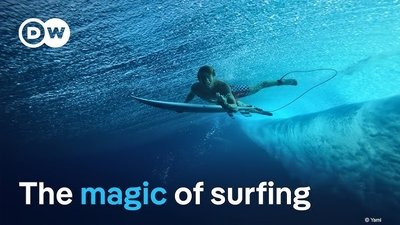
Surfing - Once upon a wave
Episode 105 • Aug 16, 2025
The documentary tells the fascinating story of surfing. With breathtaking footage, the film provides insights into a sport that has its origins in Polynesian culture. It was filmed on the coasts of Tahiti, Hawaii and California. Surfing is a sport that’s far more than just a game: It’s also the expression of a culture. In this case, it is the culture of a people who live with and on the water - the Polynesians. The art of riding the waves is their ancient heritage. Surfing was on the verge of extinction almost a century ago - a thorn in the side of Christian missionaries. It owes its resurrection to a handful of young runaways, businessmen and rebellious young men and women from all over the world. Their stories are told here. Surfing grew in popularity around the world, and eventually became a competitive sport, earning a place in the Olympics.
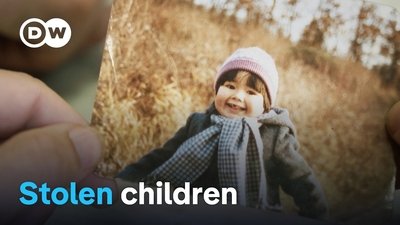
International adoptions - A global scandal
Episode 106 • Aug 20, 2025
In the last 60 years, over a million "orphans” have been adopted by Western families. Many of them are now discovering that their past is a lie. International adoptions are at the center of an unprecedented scandal. The film follows investigative journalists, activists and researchers in South Korea, Sweden, France, Chile, Germany and Switzerland. How was this huge, lucrative market able to flourish? And why does it still exist today? In many cases, these practices come to light mainly due to pressure from adopted children who have grown into adults. After discovering the dubious conditions of their adoptions, they begin to search for their birth parents and demand explanations. These searches are often easier to conduct these days, thanks to social media, the Internet and the availability of genealogy websites.

Superpower laughter - How humor makes us strong
Episode 107 • Aug 21, 2025
Laughter is both contagious and a social behavior: people laugh 30 times more often in company. The documentary shows how neuroscience and psychology have discovered that humor makes us stronger. In London, neuroscientist Sophie Scott has dedicated herself to researching laughter. "Laughter plays an important role in building and maintaining social relationships. It reduces stress and relaxes us. It is an important behavior to understand," she says. This is why laughter is also interesting for psychology. A research team at the Alpen-Adria-Universität Klagenfurt is exploring how humor can help in psychotherapy.
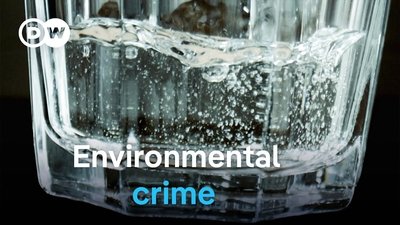
PFAS - "Forever chemicals" in drinking water
Episode 108 • Aug 24, 2025
It’s one of the biggest environmental scandals ever to hit Germany. In 2012, a routine inspection uncovers industrial chemicals, known as PFAS, in the drinking water of the southern German town of Rastatt. PFAS, perfluorinated and polyfluorinated alkyl compounds, are found in many everyday products such as Teflon pans and water-repellent clothing. They accumulate in the environment and in tissue and can cause considerable damage. PFAS pose risks to human health including an increased risk of certain cancers, fertility issues and a reduced response to vaccinations. PFAS are highly persistent in the environment and don’t readily break down, which is why they’re also known as "forever chemicals". The EU is currently considering a PFAS ban.
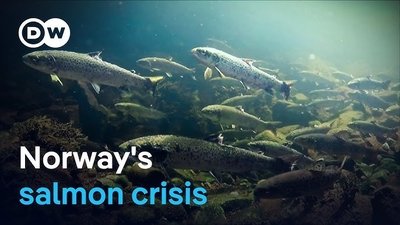
Can Norway’s wild salmon be saved?
Episode 109 • Aug 26, 2025
Factory farming is threatening to wipe out wild salmon populations in Norway - due to the dramatic spread of parasitic salmon lice. Can the wild salmon still be saved? On Norway's vast salmon farms, a parasite is causing mass deaths of fish. Salmon lice have gotten out of control, infesting not just farmed salmon but also the wild salmon that swim between the sea and Norway's rivers. The parasites are finding their way into open water from the open-net cages of off-shore salmon farms, where millions of fish swim. Fishing enthusiasts, scientists and environmentalists are fighting to preserve the wild salmon as well as the culture it represents.

Children in elite sports - A lost childhood
Episode 110 • Aug 27, 2025
For top-class sport, many people have had to sacrifice their childhood. Even before they reach the age of 10, some have experienced a range of abuse. More and more athletes are speaking out, in order to draw attention to this.

TikTok, China and the fear of digital propaganda
Episode 111 • Aug 28, 2025
TikTok is the most popular app among young people, with more than 1.6 billion users worldwide today. Streaming videos featuring influencers in particular draw huge numbers of viewers. But TikTok is highly controversial. Not just because the app has a very opaque content management system and collects a massive amount of its users' personal data. This, after all, is also the case with many other social media and apps. However, TikTok is owned by a Chinese company, Byte Dance. This is why the governments of Europe and the US in particular suspect that all the data collected could be passed on to the Chinese regime. They, in turn, could use it to influence public opinion worldwide.

Globalization - How crises change our world (1/2)
Episode 112 • Aug 29, 2025
The battle for raw materials. Climate change. Digitalization. These things have rapidly changed the world. Who wins, who loses? What is yet to come? This film looks at how lives are shifting, in seven regions of the world.
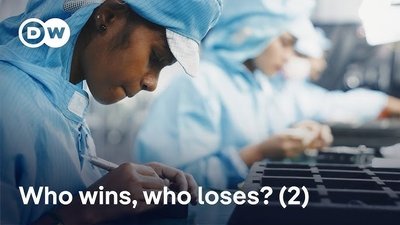
Globalization - How crises change our world (2/2)
Episode 113 • Aug 29, 2025
The battle for raw materials. Climate change. Digitalization. These things have rapidly changed the world. Who wins, who loses? What is yet to come? This film looks at how lives are shifting, in seven regions of the world.

The orphans of World War Two
Episode 114 • Sep 03, 2025
The Second World War claimed the lives of millions of people and left many children orphaned. One of the worst-affected countries was Poland, where entire families were wiped out. This documentary highlights the desperate fate of these children orphaned by war.
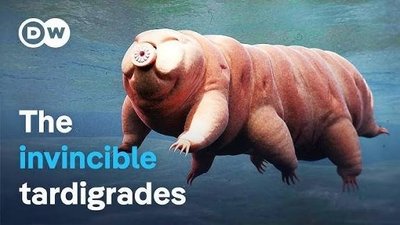
Tardigrades - Showing us the way of immortality?
Episode 115 • Sep 04, 2025
Their appearance is amusing - and they’re extremely hardy. Tardigrades are microscopic creatures. Their lumbering gait resembles that of bears, and they can withstand extreme temperatures, enormous pressure, toxic substances and radioactive radiation. NASA sent them into space in 2021 on board the ISS, where they orbited the Earth around 7,000 times. Thanks to the cute tardigrades, it may even be possible to find a way to send humans to Mars in the future. The survivalists show that life is possible everywhere - even where it seems unimaginable.

German colonial crimes in Tanzania
Episode 116 • Sep 12, 2025

DNA tests: Who is getting rich with the data from our genes?
Episode 117 • Sep 13, 2025

Our immune system - Miracle weapon against cancer?
Episode 118 • Sep 19, 2025
Our immune system protects us from pathogens, harmful substances and malignant cell changes. For humans, it is indispensable. This film examines the immune system and shows how it can be strengthened - as well as how it can fail. The film presents fascinating examples, clear explanations and interviews with international experts. A pediatrician in Hamburg explains how the immune system develops in infants and young children. Immunologists in Paris and New York shed light on the relationship between the microbiome and the immune system. And an oncologist in Heidelberg uses immunotherapy to specifically combat cancer. Never before has the immune system been the focus of so much scientific research as it is now.
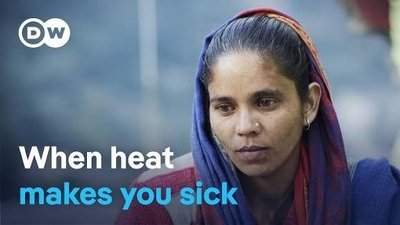
Living with climate change
Episode 119 • Sep 24, 2025
In the global North, climate change is often still something very abstract. For people in countries like India or the Philippines, however, it is already very real. Extreme heat dominates everyday life. Heavy rain washes away houses and roads.

The San Andreas Fault
Episode 120 • Sep 30, 2025
California is one of the most active earthquake regions in the world. The San Andreas Fault, a 1,300-kilometer-long fracture zone in the earth's crust, runs through the cities of San Francisco and Los Angeles. Scientists fear a major earthquake. The San Andreas Fault is currently the most strongly observed geological phenomenon in the world. Scientists have long feared an earthquake so strong that it could mean the death of thousands of people. Economic damage, running into the billions, would also result. The documentary shows the scientific efforts being made to predict the unpredictable. International seismologists are studying the fault to make more accurate forecasts. The aim is also to reduce the risks for people.

Israelis and Palestinians working together for peace
Episode 121 • Oct 04, 2025
Israelis and Palestinians are working together for peace. Despite the terrorism of Hamas, Israel's brutal war on Gaza, and violence against Palestinians in the West Bank, people on both sides are seeking reconciliation.
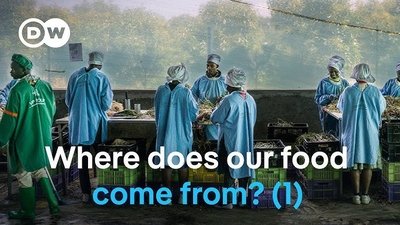
The hidden realities of farming (1/2)
Episode 122 • Oct 09, 2025
Where does our food come from, and where does it end up? This two-part series looks at the journey from production to plate, exploring the hidden world behind the food we eat.
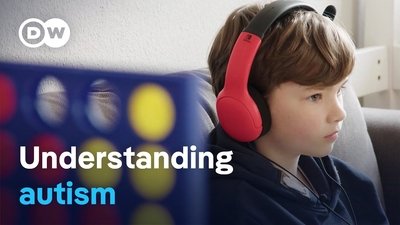
Autism: Understanding the ‘spectrum’
Episode 123 • Oct 10, 2025
For people with autism, recognizing a smile or enjoying a touch is often not possible. More and more people, especially children, are being diagnosed with "autism spectrum disorder”, a complex neurological condition. Despite an increase in the number of people diagnosed with autism, many autistic people still remain undiagnosed. This is because autism is highly complex and can manifest in many different ways. Some of those affected can live lives similar to people without autism, while others require lifelong care. The causes of autism are also a mystery. Scientists around the world are working to find out why the brains of people on the autism spectrum develop differently. This would help medical practitioners to establish reliable methods of diagnosis and effective therapies.